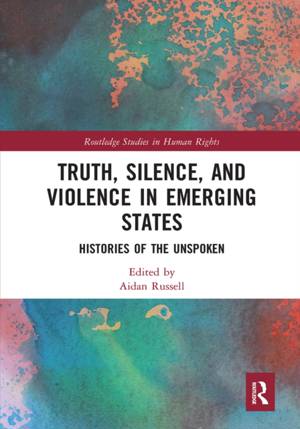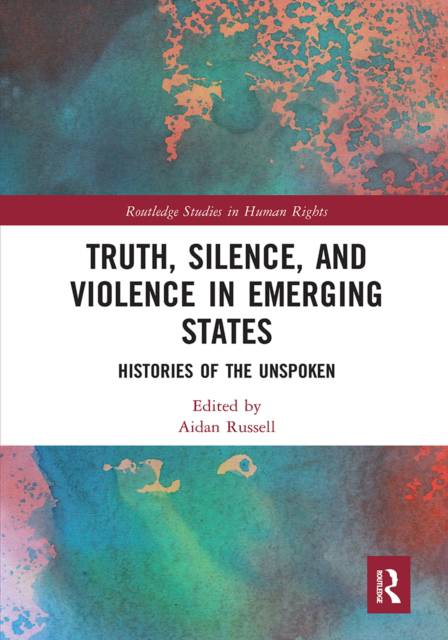
- Retrait gratuit dans votre magasin Club
- 7.000.000 titres dans notre catalogue
- Payer en toute sécurité
- Toujours un magasin près de chez vous
- Retrait gratuit dans votre magasin Club
- 7.000.0000 titres dans notre catalogue
- Payer en toute sécurité
- Toujours un magasin près de chez vous
Truth, Silence and Violence in Emerging States
Histories of the Unspoken
Description
Around the world in the twentieth century, political violence in emerging states gave rise to different kinds of silence within their societies. This book explores the histories of these silences, how they were made, maintained, evaded, and transformed.
This book gives a comprehensive view of the ongoing evolutions and multiple faces of silence as a common strand in the struggles of state-building. It begins with chapters that examine the construction of "regimes of silence" as an act of power, and it continues through explorations of the ambiguous limits of speech within communities marked by this violence. It highlights national and transnational attempts to combat state silences, before concluding with a series of considerations of how these regimes of silence continue to be extrapolated in the gaps of records and written history. This volume explores histories of the composed silences of political violence across the emerging states of the late twentieth century, not solely as a present concern of aftermath or retrospection but as a diachronic social and political dimension of violence itself.
This book makes a major original contribution to international history, as well as to the study of political terror, human rights violations, social recovery, and historical memory.
Spécifications
Parties prenantes
- Editeur:
Contenu
- Nombre de pages :
- 232
- Langue:
- Anglais
- Collection :
Caractéristiques
- EAN:
- 9781032241753
- Date de parution :
- 13-12-21
- Format:
- Livre broché
- Format numérique:
- Trade paperback (VS)
- Dimensions :
- 156 mm x 234 mm
- Poids :
- 331 g

Les avis
Nous publions uniquement les avis qui respectent les conditions requises. Consultez nos conditions pour les avis.





